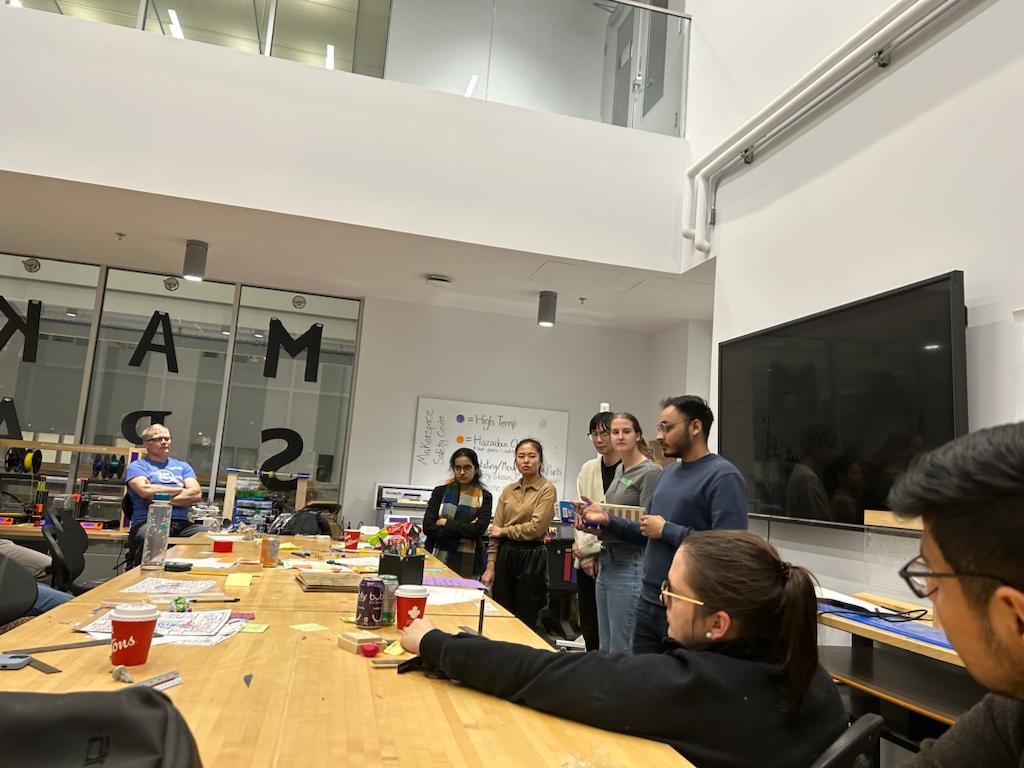From Concept to Tabletop: DalBox Build a Board Game Challenge
From Concept to Tabletop: DalBox Build a Board Game Challenge
By Prarthobee Tariq
Whether it’s a cozy family gathering, a lively social event, or a blackout night during a snowstorm, board games never fail to be a reliable and entertaining option. Recognizing that board games are a staple, DalBox Build a Board Game Challenge took place on Sexton Campus on the 10th and 11th of February and gave the participants a platform to showcase their creativity and ingenuity by constructing their own board games.
Not only did it help participants showcase their game design skills but also collaborate with others to create a successful game. Creating a unique game requires critical thinking skills which is another thing this event tried to foster among its participants while also teaching them the importance of constructive criticism and playtesting. The process involved several stages which were brainstorming, prototyping, testing, and refining. Each participant showcased their individuality and creativity through their game ideas and developed skills along the way.
Day one of the event started with an introduction to board games and showcasing of different types of games to the participants. The participants then had the opportunity to play from the enormous collection of board games available to them. While they did so, they filled out a worksheet that asked them to analyze the game by answering various short questions about them. After that, participants were asked to give opinions on the games they played and to group all the opinions under sub-topics for a better understanding of the games. Afterward, groups were made where participants came together to discuss the ideas they had and make a rough sketch for the top three ideas.
Day two of the event started with creating the final four groups and having more group discussions along with a rough presentation of the top ideas from each group. All the ideas were voted on by participants and event managers. After that, each group chose one game to work on and made their first prototype. Each prototype was then tested by other groups. After that changes were made accordingly and the final product was made with testing at each stage by various groups of participants. The groups also made instruction manuals and packaging for their games.
At the end of the event, each group had to present their games to the entire audience which consisted of other participants and event managers. The groups presented their games along with the instruction manuals while briefly explaining the objectives and gameplay. They also talked about other aspects of the game such as the user experience, decision points, and game difficulty. Participants also explained the reason their game would appeal to the intended demographic and highlighted their creativity and ingenuity.
The participants showcased a diverse range of games. There was one adventure game that required players to complete obstacles to collect treasure. Another game was a card game that allowed players to roll the dice and collect powers for their game characters. There was also an educational language learning game that let the players learn and practice a new language while having fun. On a more fun note, there was also a party game with a monopoly-like setup asking players to complete dares. At the end of the event, the groups were allowed to take their games home to play and keep them.
The participants were faced with numerous challenges when they had to create their own board games. Coming up with a unique concept with gameplay mechanics that are engaging, and fun within a time crunch was difficult. Each participant had to be creative, patient, with attention to detail to make sure their game was appropriately balanced and fair. However, participants overcame these challenges by brainstorming and receiving constructive criticism from peers. The event showcased creativity, critical thinking, and cooperation in the participants. It also provided a practical demonstration of the complex thought process that goes into board game designing and enabled participants to understand their ability to work under pressure and time constraints.

